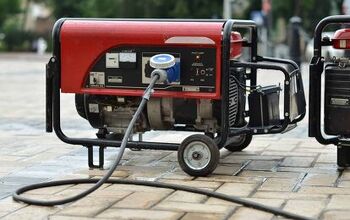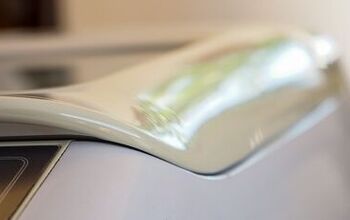Can You Put Insulation Around Hot Water Pipes?

A common question homeowners have before they start a home improvement project is: “Can I put insulation on hot water pipes?” The answer depends on the type of insulation you use.
Yes, you can put insulation around hot water pipes; however, it must be designed specifically for high temperatures. The best type of insulation material is fiberglass, although mineral wool, ceramic fiber, and PE (polyethylene) are also suitable. Benefits of installing insulation around your hot water pipes include an increase in water temperature and energy cost savings.
Continue reading to learn if it’s possible to put insulation around hot water pipes and how to complete this project. Additionally, we’ll cover the benefits of insulating hot water pipes.
Do You Need to Hire a Plumber?
Get free, zero-commitment quotes from pro contractors near you.

Is It Possible to Put Insulation Around Hot Water Pipes?
It’s 100% possible to put insulation around hot water pipes.
Insulating hot water pipes helps keep the pipe from getting too cold and potentially freezing, which would require costly repairs. But if your insulation is not rated for high temperatures, it may melt or be damaged by the heat.
The best type of insulation for a hot water pipe is fiberglass. It’s made of glass that is spun into fibers, then added to plastic polymers. Fiberglass insulation is naturally fire-resistant and can withstand temperatures of 1,000 degrees Fahrenheit or greater.
Mineral wool, ceramic fiber, and PE (polyethylene) pipe insulations are also good choices for their heat-resistant properties.
Be sure to only install insulation that meets specifications for high temperatures and choose a reputable company to do the work.
How to Put Insulation Around Hot Water Pipes
Before you start, make sure to turn off the gas or electricity that fuels your water heater. If you’re installing fiberglass insulation, wear protective gear like goggles and gloves to keep the fibers out of your eyes and off your hands.
Remember to follow instructions carefully when using fiberglass insulation.
To install insulation around your hot water pipers, follow these steps:
- Wait for your pipes to cool (don’t attempt this after you’ve taken a shower or run the washing machine or dishwasher).
- Unroll the fiberglass insulation with the foil side facing upwards.
- Start wrapping your hot water pipes (fluffy side down), slightly overlapping the insulation as you go.
- Make sure the pipe is completely covered, even around corners. Don’t wrap too tightly, or this could cause blockage in the pipes.
- When you’re finished, secure the insulation with acrylic or duct tape.
- If you opt for a PE pipe stick, all you have to do is measure, cut it, and slip it over your pipes. Most come with an adhesive for easy application.
This project is fairly easy to complete, but if you feel uncomfortable doing it yourself, call a professional. They will charge anywhere from $100-$1000, depending on the scope of the project.
What Are the Benefits of Insulating Hot Water Pipes?
The colder the temperature of your water pipe, the less efficiently it’s able to deliver heated water throughout your home.
There are many benefits of insulating hot water pipes:
- It protects your pipes in extremely cold weather and prevents them from bursting.
- Insulation reduces the risk of bacteria growth, which can result in a reduction in asthma and allergies.
- Pipes insulated with fiberglass or PE insulation are less likely to corrode over time.
- Insulating hot water pipes reduces heat loss.
- It can raise water temperature an average of 3 degrees Fahrenheit, allowing you to lower your water temperature settings.
- The above benefit will save you money on your electricity bill each year.
For more information on insulating your hot water pipes, reach out to a local plumber or handyman.
Will Pipe Insulation Keep Hot Water Pipes from Freezing?
Pipe insulation is meant to keep water pipes from getting too cold.
In most scenarios, insulation is a great way to prevent heat loss and reduce condensation that might form around hot water pipes. However, if your house is subject to extremely low temperatures, insulation won’t prevent your pipes from freezing.
Other actions you can take to prevent your pipes from freezing include:
- Letting water drip via your faucets
- Sealing external leaks
- Using heat cables or heat tape
- Opening cabinet doors
- Adjusting the thermostat accordingly
If you have any concerns about your hot water pipes freezing during the winter months, contact a professional plumber who will inspect your home’s water flow and recommend solutions based on their findings.
Related Questions
Why are my hot water pipes making noise?
If you hear a banging, hissing, or rumbling noise coming from your hot water pipes, it can be caused by many things. A plumber will come in and inspect the area to determine the source of the issue.This sound most commonly results from hot water traveling through cold water pipes. When this happens, metal expands and rubs against its surrounding areas. When it cools, it contracts and can also exhibit a crackling sound.This is a fairly common occurrence and is usually nothing to worry about.
Why doesn’t my shower have hot water?
There are several reasons why you might not have hot water coming from your shower fixture:
- The heating element in the water heater itself could be broken.
- There could be a blockage in the pipes that is preventing water from heating up.
- The water temperature setting is too low.
Use caution when adjusting the temperature maximum of your water heating by yourself. You don’t want to make it so hot that it could scald your skin.
How long do hot water heaters last?Water heaters last approximately 10 years. Anything longer and you should consider upgrading to a new machine.
Do You Need to Hire a Plumber?
Get free, zero-commitment quotes from pro contractors near you.

In Conclusion
It’s perfectly safe to put insulation around your hot water pipes, as long as it’s a heat-resistant material.
Pipes that are insulated with fiberglass or PE insulation are less likely to corrode over time. Additionally, insulating hot water pipes reduces heat loss and can raise the temperature of your water by 3 degrees Fahrenheit, which will save you money on your electricity bill each year.
For more information on insulating your hot water pipes, reach out to a local plumber or handyman!

Emily is a copywriter with over five years of experience in crafting content for the home renovation and remodeling industry. She loves house projects, whether it be painting a room or tweaking small design elements to transform a space. Her favorite aesthetic is french modern because of its clean lines and airy feeling! When not writing, Emily loves to travel and check out architectural details all over the world.
More by Emily Carr



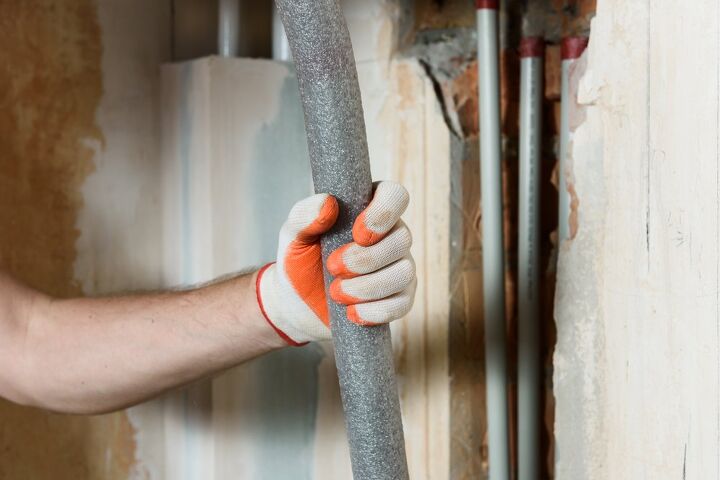






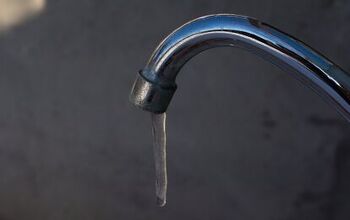
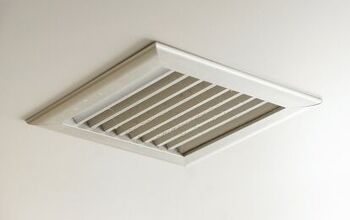


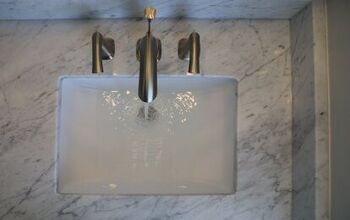


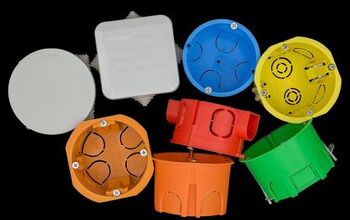






![Cost To Drill A Well [Pricing Per Foot & Cost By State]](https://cdn-fastly.upgradedhome.com/media/2023/07/31/9074980/cost-to-drill-a-well-pricing-per-foot-cost-by-state.jpg?size=350x220)
